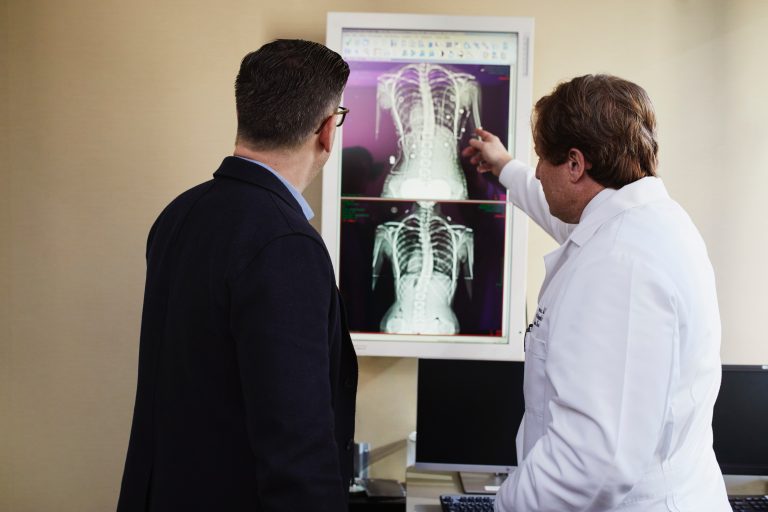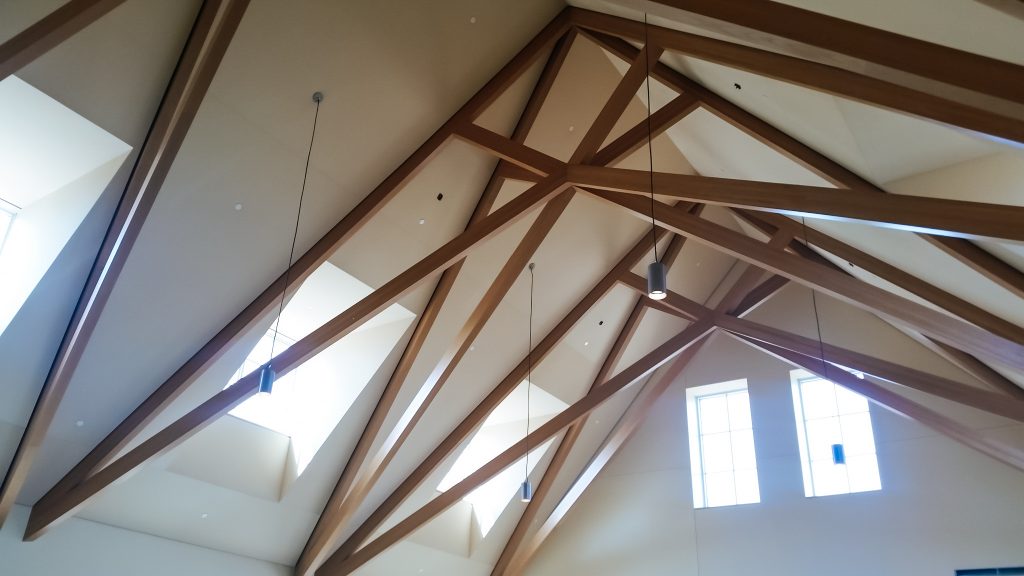What is HIPAA?
HIPAA or the Health Insurance Portability and Accountability Act, protects patient privacy. Medical professionals, i.e. doctors, nurses, interns, secretaries, etc. can’t share patient’s information to anybody outside of HIPAA’s allowance. Not even their spouses! This is to protect patient’s privacy and let them control how they process and distribute information.
How HIPAA deals with speech privacy
With written or digital documentation, healthcare professionals do a good job keeping medical records private. However, in busy crowded healthcare facilities, verbal communication is difficult to keep private. The Acoustics in Healthcare Environments CISCA report, dated October 2010, states that HIPAA requires a confidential level of speech inside healthcare facilities, which formally measures in at an articulation index level between 0.0 and 0.5.

Areas where HIPAA might become an issue
There are so many places where medical information needs to be discussed, but these discussions are likely to be overheard. Here’s a quick list of different spots where this could happen.
- Reception areas: As a patient checks in at the front desk, others seated in the reception area may overhear snippets about the patient’s medical history.
- Nurses stations: Those found in an area near the nurse’s station may overhear staff discussing details from another patient’s report.
- Hallways: As a patient sits in the hallway or walks past rooms, there’s potential that they hear parts of discussions between doctors and patients or between other staff members.
- Pharmacies: Patients waiting in line are probably going to catch the name of the prescription ordered if it’s said out loud.
- Patient rooms: In shared rooms, it’s very difficult to hold a conversation with family or with medical professionals without being overheard by the room’s other patient.
- Exam rooms: In rooms with thin walls or a divider, next door’s private conversation may not be so private after all.
- Doctor’s offices: Many conversations take place in a doctor’s private office, and thin walls broadcast these conversations to those outside the room.
The best way towards speech privacy
Here are two of the most effective speech privacy applications that you can use to help keep patient confidentiality. By implementing these strategies, you create a healthcare environment where patients and staff feel confident communicating openly.
Sound absorption
By treating the areas listed below with absorptive materials, you reduce sound transmission and increase patient privacy. Here are some recommendations for healthcare facilities’ challenging areas:
- Reception areas: A stretch fabric acoustical solution gives the lobby a design-centered element while also helping patients talk privately to secretaries or family members. Other decorations like rugs, curtains, or fabric-covered furniture will also provide absorptive qualities.
- Hallways / Nurses’ stations / Pharmacies: Drop ceiling tiles or acoustic clouds absorb noises so private conversations held in open areas don’t travel far beyond the intended audience.
- Patient rooms / Exam rooms / Doctor’s offices: In shared or private rooms, direct-attach wall panels absorb sounds to make sure conversations can’t be understood by those in the area or outside the room.

Sound blocking
Sound blocking materials are generally used in private rooms, as they make sure information isn’t flowing through the walls or into the hallway. Most of these materials are difficult to install after a building’s already up, so they should be considered early on in the building process. Check below for some sound blocking options you can utilize.
- Patient rooms / Exam rooms / Doctor’s office: By building a room with enough wall thickness and insulation and with high-quality windows and doors, you create a soundproofing experience that makes sure conversations aren’t being overheard in the hallway or in adjoining rooms. You can also fill the gap under the door with a draft stopper to prevent noise from getting out.
Where to start?
At Conwed, we use innovation to build technologically-advanced acoustic solutions. These solutions can help healthcare facilities adhere to HIPAA regulations. Respond A Series, Loaded Vinyl, and New Dimensions wall panels and ceiling tiles all absorb sounds that may otherwise carry beyond their intended audience.

Eurospan® works similarly by providing absorptive acoustic relief through its fiberglass tiles and overlaying stretch fabric.

If speech privacy is a concern, get in touch with one of our representatives. They have years of experience providing noise treatment to buildings across the country and can advise you towards the best solutions for your healthcare facility.